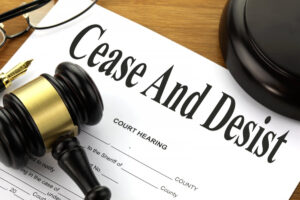Music legend John Lennon, former Beatles star, once sung the words “you may say I’m a dreamer, but I’m not the only one.”[1] These words, which make up the chorus for one of his most famous songs, Imagine, have a unique significance today, as the future of hundreds of thousands of “Dreamers” seems uncertain.[2] As the immigration debate continues to unfold and the prospect of a solution seems ambiguous at best, it’s important to look to the past and the history of who these Dreamer truly are.
The Dreamers group is composed of individuals who were involuntarily and illegally brought to the United States by their parents at a young age.[3] These foreign-born nationals, now around 800,000 recipients, were granted a discretionary form of immigration status under the Deferred Action for Childhood Arrivals (DACA) program.[4] This program, enacted in 2008 by then President Obama, allowed certain young individuals who were brought to the United States illegally to receive temporary relief from deportation and permission to study or work.[5] However, the true history behind the authority for passing DACA goes much deeper to the relationship of two icons, artist John Lennon and attorney Leon Wildes.[6]
John Lennon, an Englishman, founded the Beatles and is considered to be one of the most iconic singer-songwriters in history.[7] He eventually moved to New York City and a few years later met Leon Wildes, former president of the American Immigration Lawyers Association and Founding Partner of Wildes & Weinberg, P.C.[8] Their paths crossed because Lennon was threatened with deportation by the United States government because he had a criminal drug conviction in England.[9] At the advice of a British attorney, Lennon had plead guilty to the possession of “cannabis resin” years before he came to the United States.[10] After years of battling the United States government, Wildes eventually won the case for Lennon and Lennon was free to live in the United States without fear of deportation.[11]
What is most remarkable from this case, however, is Wildes’ discovery of the then obscure legal concept known as “Prosecutorial Discretion.”[12] Wildes figured that there must be some sort of prioritization of deportation cases, because there is no way the government had the resources to try all potential deportees at once.[13] He therefore made a request to the government using the Freedom of Information Act[14] and, for the first time ever, learned that such a practice existed.[15]
Prosecutorial Discretion grants the power to government officers and agencies to decide what charges to bring and how to pursue each case.[16] This in turn gives the authority to certain government officials to decide whether to prioritize a case, put it aside temporarily, or ignore it all together.[17] To that respect, the Deferred Action used by President Obama is in fact a form of Prosecutorial Discretion.[18] The United States Citizenship and Immigration Services (USCIS) even goes as far to define Deferred Action as “a discretionary determination to defer a removal action of an individual as an act of prosecutorial discretion.”[19]
Lennon was granted Prosecutorial Discretion, or Deferred Action, and by the end of the case, Wildes was even able to obtain a Green Card for the famous Beatle.[20] He lived happily with his wife, Yoko Ono, for many years in New York before he was eventually murdered in cold blood by Mark David Chapman, an obsessive and crazy fan from Texas.[21] While Chapman may have destroyed Lennon’s life, Lennon’s legacy and many messages will live on forever. Today, one of those messages resonates through the American political sphere as the status of DACA has an uncertain future under President Trump’s administration.[22]
Lennon’s lyrics, “you may say I’m a dreamer, but I’m not the only one” is somewhat of a creed to so many today. As the entire DACA program finds itself at the center of political debate, it is unclear what will happen to the status of those 800,000 individuals, who just like Lennon, are Dreamers.[23] What is clear, however, is that the authority behind DACA truly is a tribute to the great work of John Lennon and Leon Wildes, both rock stars in their own fields.[24] As the debate continues, perhaps the American people can learn from the lesson of Lennon and Wildes and continue to strive for a society where, as Lennon sings later in the song, “the world will be as one.”[25]
Josh Wildes is a second-year law student focusing on International & Comparative Law at the Benjamin N. Cardozo School of Law, where he serves as a Staff Editor for the Arts & Entertainment Law Journal and the Co-President of the Sports Law Society. Josh is currently the Director of Communications for Wildes & Weinberg, P.C., a preeminent immigration law firm based in New York City. Josh has also served as the Vice President of Hazan Sports Management and has held legal internships at the Department of Homeland Security and Earthbound Brands, Inc. Josh looks forward to pursuing a career in Immigration Law and helping foreigners legally enter the United States.
[1] See Imagine Lyrics, Genius, (last visited Feb. 27, 2018, 10:15 a.m.), https://genius.com/John-lennon-imagine-lyrics.
[2] See generally Caitlin Dickerson, What is DACA? Who Are the Dreamers? Here Are Some Answers, NY Times, (Jan. 23, 2018), https://www.nytimes.com/2018/01/23/us/daca-dreamers-shutdown.html.
[3] Alan Gomez, Who Are the DACA DREAMers and How Many Are There?, USA Today, (last updated Feb. 13, 2018, 4:21 p.m.), https://www.usatoday.com/story/news/politics/2018/02/13/who-daca-dreamers-and-how-many-here/333045002.
[4] Id.; see also Catherine E. Shoichet, Susannah Cullinane and Tal Kopan, US immigration: DACA and Dreamers explained, CNN, (last updated Oct. 26, 2017, 2:23 p.m.), https://www.cnn.com/2017/09/04/politics/daca-dreamers-immigration-program/index.html (President Obama used his executive authority to establish DACA under the DREAM Act).
[5] Richard Gonzales, 5 Questions About DACA Answered, National Public Radio, (Sept. 5, 2017, 8:48 p.m.), https://www.npr.org/2017/09/05/548754723/5-things-you-should-know-about-daca
[6] See generally Hansi Lo Wang, John Lennon’s Deportation Fight Paved Way For Obama’s Deferred Action Policy, National Public Radio, (Aug. 26, 2016, 4:42 p.m.), https://www.npr.org/2016/08/23/490957803/john-lennons-deportation-fight-paved-way-to-obamas-deferred-action-policy.
[7] John Lennon Bio, Rolling Stone, (last visited Feb. 27, 2018, 10:46 a.m.), https://www.rollingstone.com/music/artists/john-lennon/biography.
[8] Partners, Wildes Law, (last visited Feb. 27, 11:02 a.m.), https://www.wildeslaw.com/about-the-firm/partners.
[9] See generally Lennon v. Richardson, 378 F. Supp. 39 (S.D.N.Y. 1974); Lennon v. United States, 387 F. Supp. 561 (S.D.N.Y. 1975); Lennon v. Immigration & Naturalization Serv., 527 F.2d 187 (2d Cir. 1975).
[10] Id.
[11] Id.
[12] See Wang, supra at Note 6.
[13] Id.
[14] The Freedom of Information Act, 5 U.S.C. § 552, as amended by Public Law No. 104-231, 110 STAT. 3048.
[15] See Wang, supra at Note 6.
[16] See Prosecutorial Discretion: A Statistical Analysis, American Immigration Council, (June 11, 2012), https://www.americanimmigrationcouncil.org/research/prosecutorial-discretion-statistical-analysis.
[17] Id.
[18] See Frequently Asked Questions, United States Citizenship and Immigration Services, (last updated Feb. 14, 2018), https://www.uscis.gov/archive/frequently-asked-questions.
[19] Id.
[20] See Jared Gilmour, How John Lennon’s deportation battle inspired Obama’s policy for Dreamers, Miami Herald, (last updated Sept. 5, 2017, 9:52 a.m.), http://www.miamiherald.com/news/nation-world/national/article171228272.html.
[21] See The Day John Lennon Was Gunned Down at the Dakota in Manhattan, New York Daily News, (Aug. 14, 2017, 6:00 a.m.),
http://www.nydailynews.com/new-york/nyc-crime/day-john-lennon-murdered-dakota-72nd-street-article-1.2989912.
[22] See Michael Shear and Julie Hirschfeld Davis, Trump Moves to End DACA and Calls on Congress to Act, (Sept. 5, 2017), https://www.nytimes.com/2017/09/05/us/politics/trump-daca-dreamers-immigration.html?mtrref=www.google.com (pursuant to his executive authority, President Trump ended the DACA program and has called on Congress to pass legislation in order to save it).
[23] See Dickerson, supra at Note 2.
[24] See Lindsay Van Dyke, How John Lennon’s deportation inspired DACA, Vice News, (Aug. 29, 2017), https://news.vice.com/en_us/article/8xmky3/how-john-lennons-deportation-inspired-daca.
[25] See Imagine Lyrics, supra at Note 1.



